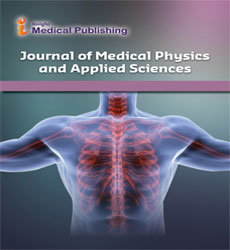Role of Artificial Intelligence in Cardiology
Jocelyne Fayn, L G Gortzis
Jocelyne Fayn1* and L G Gortzis2
1MTIC Department of Methodologies of Information Processing in Cardiology, EA4171, National Institute of Health and Medical Research, Université Lyon 1, Bron, FR69677 France
2Telemedicine Unit, School of Medicine, University of Patras, University Campus, Rio 26500, Greece
- *Corresponding Author:
- Jocelyne Fayn
1MTIC Department of Methodologies of Information Processing in Cardiology, EA4171, National Institute of Health and Medical Research, Université Lyon 1
Bron, FR69677 France
Email Id: jocelyne.fayn@insa-lyon.fr
Received Date: September 2, 2021; Accepted Date: September 16, 2021; Published Date: September 23, 2021
Citation: Jocelyne F , Gortzis LG (2021) Role of Artificial Intelligence in Cardiology. J Med Phys and Appl Sci. Vol.6 No.5:e015
Editorial Note
Artificially intelligent computer organizations are used widely in medical sciences. Common applications contain end-to-end drug detection and development, diagnosing patients, improving communiqué between physician and patient, recording medical documents, such as remotely treating patients and prescriptions. While computer systems frequently perform tasks more capably than humans, more lately, state-ofthe- art computer algorithms have attained precisions which are at par with humanoid specialists in the arena of medical sciences. Certain gamble that it is only a matter of time before humans are totally changed in certain roles inside the medical sciences.
Crucial care doctors can use AI to analyze their discussions with patients, to take notes, and enter mandatory info directly into EHR systems. These requests will gather and examine patient data and present it to primary care doctors alongside vision into patient's medical requirements.
AI can afford clinical choice support to radiologists and recover the delivery of attention to patients. With esteem to image processing, DL algorithms can help select and excerpt types from medical images as well as help build new features.
These technologies balance the awareness of doctors. Ideally, by getting together direct care and data analysis, AI cardiology lets doctors to fill more time with their patients and recovers the shared decision-making process.
For Cardiovascular medicine doctors and scientists at are merging AI with clinical exercise for healthier care. Applying AI to ECGs has caused in a low-price test that can be usually used to notice the occurrence of a weak heart pump, which can main to heart failure if left untreated. First, all recognizing patient info is removed to protect confidentiality. Then this data can be excavated to precisely expect heart failure noninvasively, reasonably and in seconds. A mutual determination of specialists is driving the quickly growing field of artificial intelligence in health care.
These AI tools and methods also play a significant role in teaching and are used by medical students, residents, fellows and skilled surgeons learning new or rare trials. Mayo Clinic leads by holding artificial intelligence conferences that bring together doctors and scientists to progress this science in health care.
Cardiology is one of the finest arenas to use AI, since it has this set of difficulties, like multifaceted patients, the need for choice support, wearable technology and the AI wanted for that. Cardiology definitely has the collection of problems with the answers that can be produced by artificial intelligence.
Open Access Journals
- Aquaculture & Veterinary Science
- Chemistry & Chemical Sciences
- Clinical Sciences
- Engineering
- General Science
- Genetics & Molecular Biology
- Health Care & Nursing
- Immunology & Microbiology
- Materials Science
- Mathematics & Physics
- Medical Sciences
- Neurology & Psychiatry
- Oncology & Cancer Science
- Pharmaceutical Sciences
